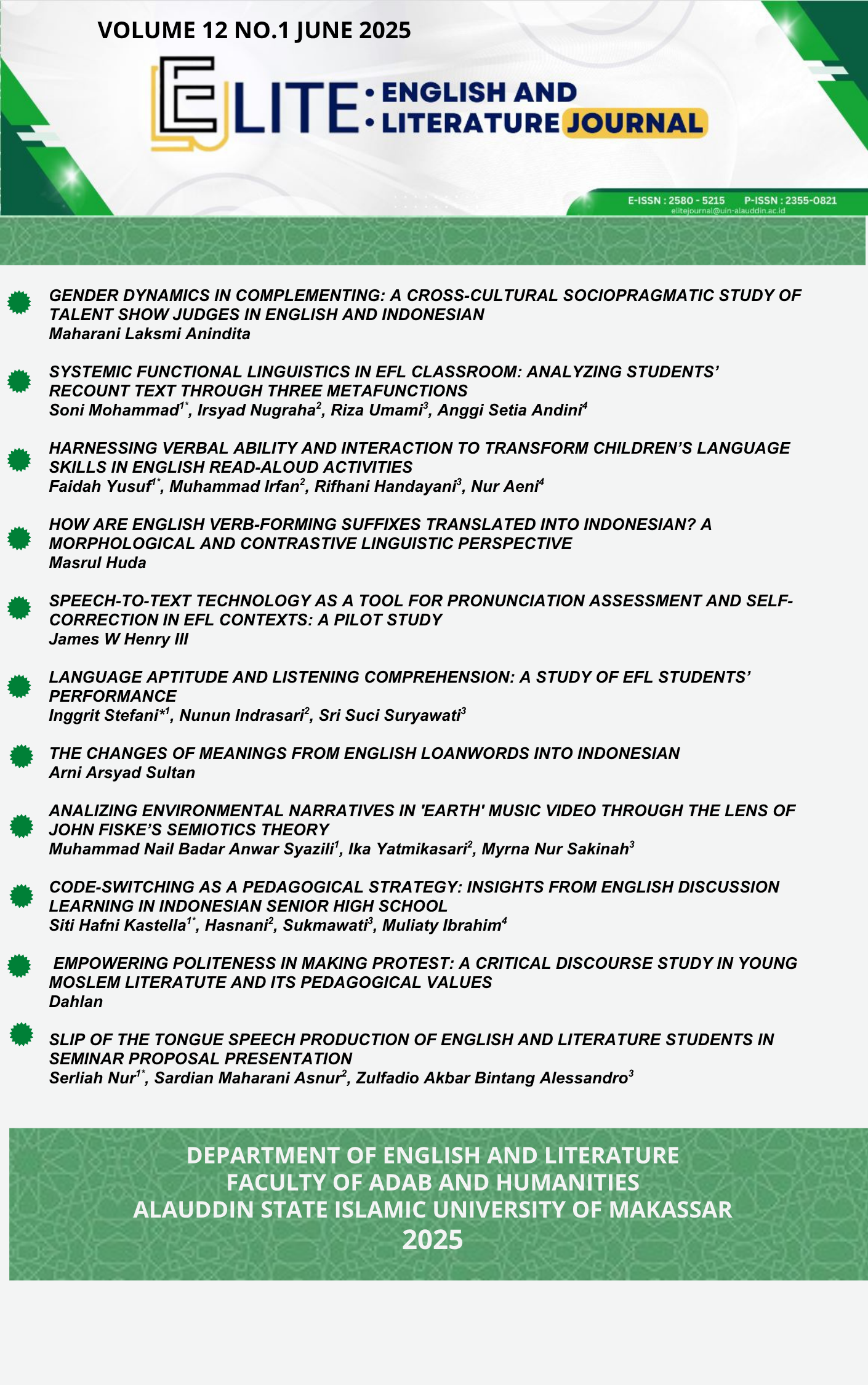SYSTEMIC FUNCTIONAL LINGUISTICS IN EFL CLASSROOM: ANALYZING STUDENTS’ RECOUNT TEXT THROUGH THREE METAFUNCTIONS
Keywords:
SFL , Recount Text, Three metafunctions , EFL ClassroomAbstract
One of the main challenges in learning English as a Foreign Language (EFL) at the Junior High School level is students' low ability to write recount texts that conform to the correct grammatical rules and text structure. Although recount texts are a type of text that is routinely taught, many students still experience difficulties in terms of the use of proper grammar, development of ideas, and cohesion between parts of the text. This suggests the need for an in-depth evaluation of the quality of students' texts, not only in terms of content but also in terms of their structure and function in the context of communication. This study is significant because it provides a thorough analysis of students' recount texts using the Systemic Functional Linguistics (SFL) approach through three metafunctions: interpersonal, experiential, and textual. Thus, this study not only reveals the extent to which students fulfill the expected generic structures and linguistic features but also identifies areas of weakness, particularly in aspects such as tense usage, subject-verb congruence, and cohesion devices. This finding is crucial for informing the development of more targeted learning strategies, particularly in enhancing the grammatical consistency and cohesion of students' texts. By understanding the linguistic aspects that students have not mastered, teachers can design more targeted teaching interventions to improve the overall quality of student writing.
Downloads
References
Ahmad, S. (2019). Transitivity Analysis of the Short Story “The Happy Prince.” International Journal Online of Humanities (IJOHMN), 25.
Anggini, C. P., & K., E. (2019). ESP Students’ Recount Text from SFL Perspective:Pedagogical Implication Based on Students’ Writing. Register Journal, 19.
Downloads
Published
How to Cite
Issue
Section
License
Copyright (c) 2025 Mohammad Soni, Irsyad Nugraha, Riza Umami, Anggi Setia Andini

This work is licensed under a Creative Commons Attribution-NonCommercial-ShareAlike 4.0 International License.
Once an article was published in the journal, the author(s) are:
granted to the journal right licensed under Creative Commons License Attribution that allows others to share the work with an acknowledgement of the work's authorship.
permitted to publish their work online in third parties as it can lead wider dissemination of the work.
continue to be the copyright owner and allow the journal to publish the article with the CC BY-NC-SA 4.0 license
receiving a DOI (Digital Object Identifier) of the work.













